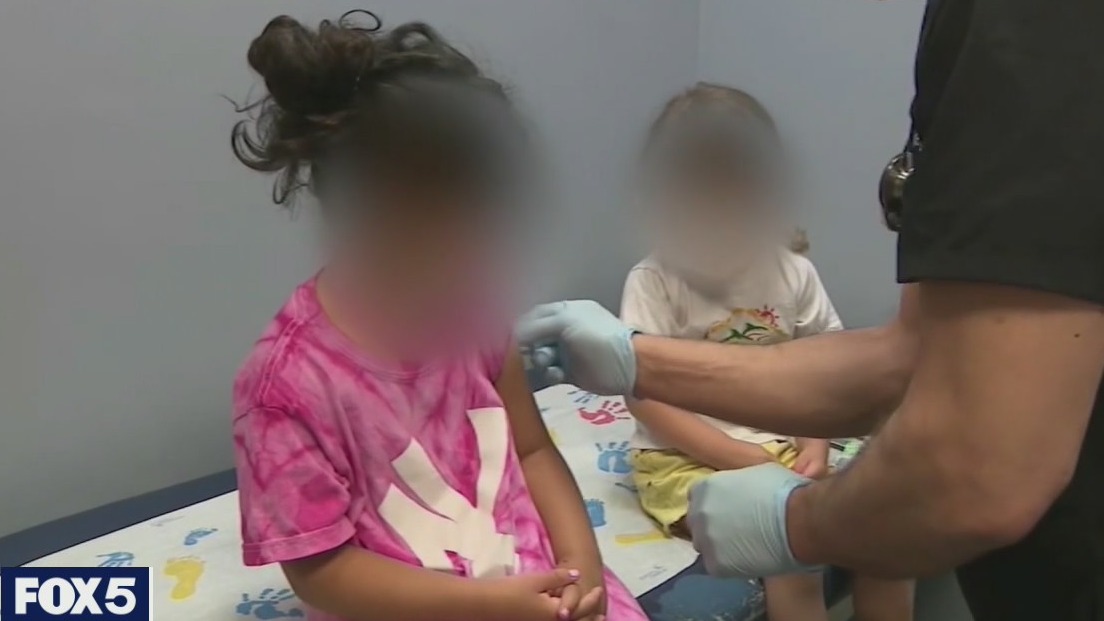Kids with RSV, other illnesses keep flooding hospitals

Pediatric illnesses on Long Island
Children with respiratory illnesses caused by viruses are overwhelming hospitals with no signs of easing up.
PLAINVIEW, N.Y. - Ask just about anyone and they'll likely know of a child, maybe even their own, who has been sick recently.
"We used to wear masks and no one got sick," said one woman. "It's not just COVID. It's all the other illnesses."
Illnesses including RSV, entero- or rhinoviruses and the flu are overwhelming hospitals with no signs of easing up.
"We've been seeing about 300 or more patients a day in the emergency department — that's almost 50% more than we usually see at this time of year," said Dr. Charles Schleiein, the executive director of Cohen Children's Medical Center on Long Island.
The spike in respiratory illnesses over the past month has caused a sharp increase in patients visiting Cohen Children's Medical Center, according to doctors there who advise parents to hold off on bringing in their children unless they're in respiratory distress.
"The vast majority are babies, usually under the age of 2, that have bronchiolitis or other upper-respiratory kinds of issues," Schleiein said.
At this point, Northwell Health officials say while they're using every inch of free space to make room for patients, they aren't turning away anyone in need of hospitalization.
The same goes for Mount Sinai South Nassau where Dr. Jay Itzkowitz offers some advice.
"The hand-washing and controlling of where you cough and covering your mouth is going to be the way that we get through this and prevent the spread," he said.
Jessica Schimmel's 10-month-old son Maverick was diagnosed with RSV nearly a month ago.
"Every day we have him in a steam shower five times a day, we have him on a nebulizer three times a day," she said. "We have all these weird homeopathic things that we're doing."
If symptoms get worse or your child shows signs of belly breathing, you should seek medical care immediately, doctors say.
TIPS FOR PARENTS AND THEIR KIDS
- Don't bring sick children to the emergency room unless they're in respiratory distress; if that happens, seek medical care immediately.
- Frequently wash your hands.
- Cover your mouth when coughing or sneezing.

